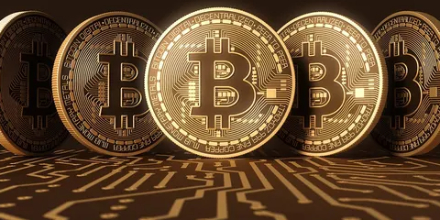Meta Pool Unveils Incentive Program Ahead of Proposed NEAR Inflation Cut
 2025/07/03 12:35
2025/07/03 12:35Meta Pool has launched a targeted incentive program designed to safeguard validator profitability and ensure a smooth transition to community-led governance.
Key takeaways
- Meta Pool has launched a new incentive program to support validators and delegators ahead of NEAR’s proposed inflation cut.
- The initiative introduces APY boosts, infrastructure subsidies, and discounted NEAR rewards to ease the impact of reduced staking emissions.
- The effort aligns with NEAR’s transition toward community-driven governance, with a validator vote on the inflation change expected in July.
The announcement follows a proposal by HOT DAO to reduce staking reward emissions, an initiative currently under discussion in NEAR’s governance forums and heading to a validator vote in July.
The proposed shift would significantly lower NEAR’s inflation rate from 5% to 2.5%, a move proponents argue is necessary to address long-standing concerns about unsustainable token issuance and inflationary pressure.
What does the initiative include?
Anticipating the impact of the proposed cut, Meta Pool has introduced a multi-pronged incentive package designed to mitigate disruption for both validators and delegators. The initiative includes:
Delegator APY Boost Program: Allows delegators to lock their tokens for 1 to 6 months in exchange for a boosted APY. Validators receive a portion of the rewards based on the delegated locked stake.
Community Validator Support: Offers infrastructure subsidies for smaller validators and introduces a low-cost validator onboarding option, around $30/month, to ensure broad participation without compromising network security.
Performance-Based Discounts: A monthly pool of discounted NEAR tokens will be made available to top-performing validators, providing additional compensation during the transition.
Meta Pool, a long-standing contributor to NEAR’s validator landscape, emphasized the importance of a structured approach to governance evolution.
“A healthy, informed debate around emissions is essential,” the DAO stated. “We welcome discussion, but we also believe in acting decisively to protect and empower those who secure the network.”
The program will be developed in collaboration with the NEAR Foundation, with additional details expected in the coming weeks. The DAO’s broader objective is to align NEAR’s economic incentives with long-term sustainability and decentralization, ahead of the launch of the House of Stake governance framework later this year.
With the inflation vote pending, Meta Pool is calling on validators, delegators, and ecosystem participants to engage in the process and help shape the network’s future.
Update:
Meta Pool has made updates to the proposal, adding further details and clarifications in the NEAR governance forum.
Disclaimer: The content of this article solely reflects the author's opinion and does not represent the platform in any capacity. This article is not intended to serve as a reference for making investment decisions.
You may also like
Don't be fooled by the rebound! Bitcoin could retest the lows at any time | Special Analysis
Analyst Conaldo reviewed bitcoin’s market performance last week using a quantitative trading model, successfully executing two short-term trades with a total return of 6.93%. The forecast for this week is that bitcoin will continue to fluctuate within a range, and corresponding trading strategies have been formulated. Summary generated by Mars AI. The accuracy and completeness of this summary, generated by the Mars AI model, are still being updated and iterated.

Espresso co-founder’s decade in crypto: I wanted to disrupt Wall Street’s flaws, but witnessed a transformation into a casino instead
Everything you've been hoping for may have already arrived; it just looks different from what you expected.

Solana Foundation Steps In as Kamino and Jupiter Lend Dispute Intensifies

Bitcoin Firms Confront the Boomerang Effect of Excessive Leverage
